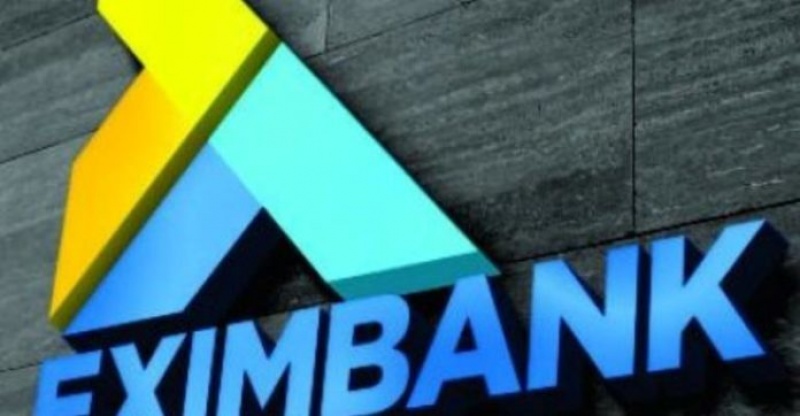
The Ghana Export-Import (GEXIM) Bank, government’s principal export Finance institution in the country, has unveilled its 3-year strategic plan aimed at revamping the private sector by using an inclusive approach for the creation of 100,000 sustainable jobs and improvement of livelihoods – particularly for women in the informal sector – as well as strengthening high potential value-chains to advance horizontal and vertical export diversification and support local aggregation for improved food distribution in the country.
The Bank’s strategy is aligned to government’s 10-point Agenda for Industrial Transformation, and also focuses on developing specific sectors such as: Garment and Apparel Manufacturing; and Raw Material Base Development for Avocado, Cashew, Oil Palm, and Cassava among others.
Ultimately, the Ghana EXIM Bank seeks to support the private sector with a view to improving the country’s economic fortunes; and therefore, in choosing enterprises it will support, Ghana EXIM Bank considers three key benchmarks which are derived from development instead of commercial objectives. These are employment creation, value addition through production efficiency, and foreign exchange revenue potential.
Crucially, however, the bank has in place a strict risk-management framework, together with efficient monitoring strategies to ensure minimal impairment levels.
Its lending rate is the lowest in the industry, at 8% per annum to support export and strategic importation. Each sector the Bank finances is selected based on its potential competitiveness in the West African sub-region, and indeed Africa as a whole.
The Bank is focused primarily on raw material base development, because it identifies this strategy as the key to sustained agro-processing.
From 2019-2021, the Exim bank plans to give credit support to 100 Small Medium Enterprises, with less than or equal to GH¢1million each for the SMEs with a demand-driven out-grower support investment portfolio per each scheme at US$1million.
“The Bank has set investment priorities to reflect a healthy balance between financial return and impact, facilitated by ‘investing with acceptable discount’ in ‘impact-first and blended-return-focused’ business models within our focus area, and attracting private capital investment for impact-focused projects. It gives out 60% capital, 20% technology and 20% market access to SMEs in the country.”
GEXIM was established by the Ghana Export-Import Bank Act 2016 (Act 911). The Ghana Export-Import Bank (GEXIM) was launched to bolster government’s quest for a feasible and sustainable export-led economy.
Ghana EXIM Bank as a development bank offers seven (7) main products and services which are Traditional export finance typical of export credit agencies across the world, and Financing of export-oriented units (export capacity building), which is non-traditional, for export credit agencies.
With its 3-year development plan, the bank is poised to promote foreign trade and investment opportunities and value creation for Ghanaian exporters over a long-term period. These include: Agricultural Finance, Asset Finance, Working Capital Finance, Performance Guarantee, Retention Bond, Project Finance, Advance Payment Guarantee etc.
For agriculture finance, the bank will give credit support to: Crop and fish farming; Post-harvest management; Processing; Branding and packaging Research and Development; Aggregation and Distribution (distribution networks, transport and logistics); Export facilitation Local farm/processing equipment R&D; and manufacturing, assembly and leasing industries.
In the Creative sector, Exim Bank is ready to give credit support in areas such as Woodwork, Textiles, Ceramics and Leatherwork, and is expected to generate 1,000 jobs.
Within the agriculture crop sector, it is expected to create 40,000 jobs with a total production volume of 40,000 acres from 8 crops in all the regions, while the fish, livestock and poultry sectors are expected to generate 5,000 each, with the main beneficiaries being rural and urban women.
These not withstanding, the Auto-Engineering & Metal Works, crafts sector, and small equipment manufacture, credit and leasing companies are expected to create 15,000, 6,000 and 1,200 jobs respectively.
But these credit supports will not come easily, however; management and monitoring will be undertaken with the set-up of a Technical Assistance Fund (TAF). Specifically, the TAF will be used for Sourcing private capital investment; Monitoring and evaluating by independent impact-focused consultants; Business Advisory; Skills development and training; and Investor matching for when impact-first projects require growth capital.
Exim Bank has expressed its readiness to work with associations like the Federation of Association of Ghana Exporters; Citrus Farmers Association; Ghana Roots Crops and Tubers Exporters Association; Cereal and Legumes Growers Association; Vegetable Producers and Exporters Association; Mango Growers Association; Poultry farmers Association; and Livestock Farmers Association etc. to make this happen.
For the three-year strategic plan, the Exim Bank’s agriculture commodity references include Sweet Potato, Onion & Vegetables, Sorghum, Maize, Rice, Avocado, Mangoes, Watermelon Soya beans, Plantain, Yam, Peanuts etc.
Source : thebftonline.com

































